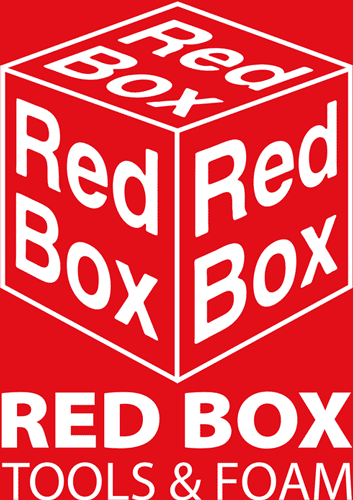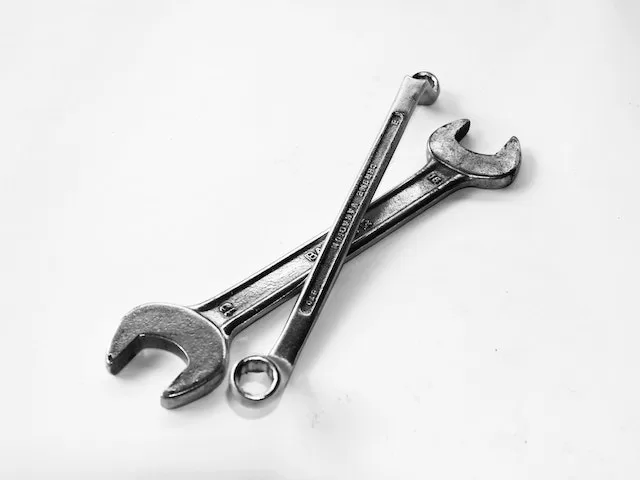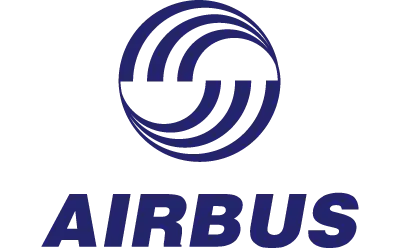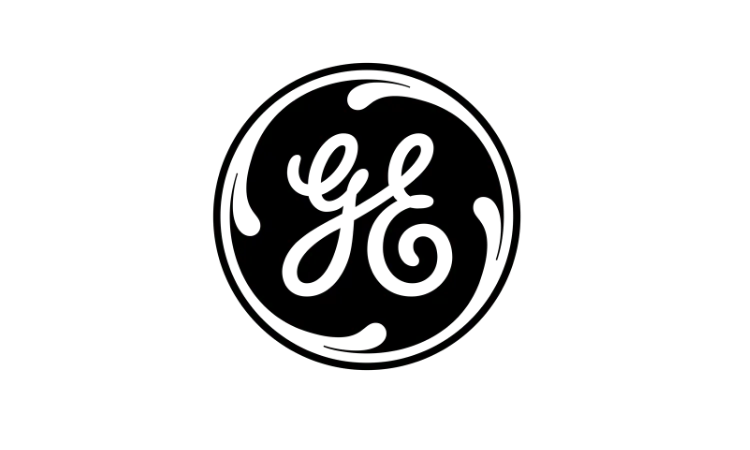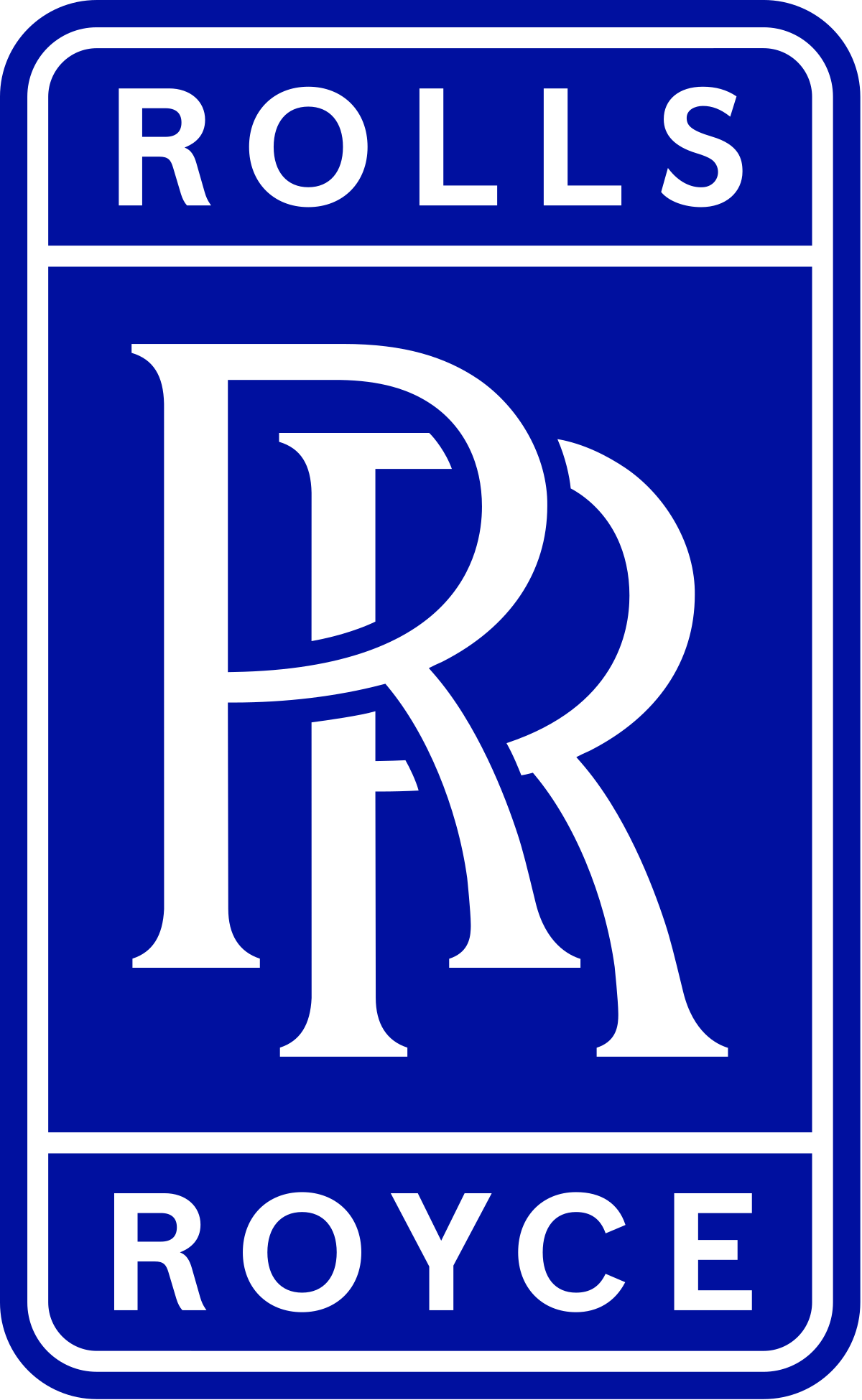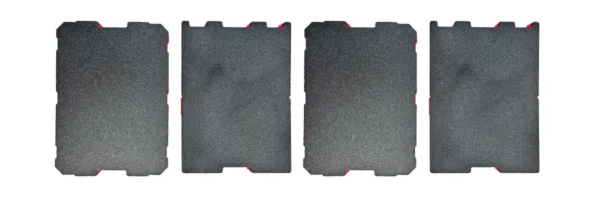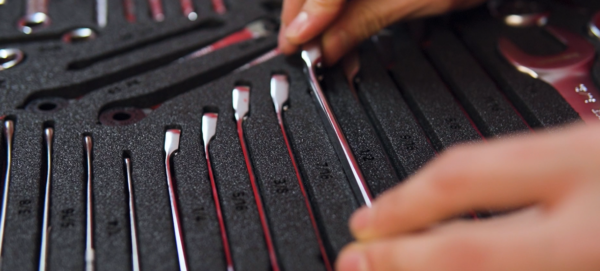A spanner and a wrench (often just referred to as wrenches in the U.S.) are two types of tool you can use to tighten or loosen nuts and bolts.
To help you tell them apart, this short guide explains exactly how these two essential tools differ and summarises the most common wrench and spanner types found in the UK.
What is the difference between a spanner and a wrench?
The key difference between a spanner and a wrench is that wrenches typically have an adjustable jaw, whilst spanners more often come in a range of fixed sizes.
Both tools can be used to tighten or loosen nuts and bolts, but there are some circumstances in which a spanner may be preferable to a wrench and vice versa.
To add to the confusion, spanners and wrenches also come in different styles, designed for different applications.
To ensure you always select the right spanner or wrench for the job, it’s important to familiarise yourself with each type and their intended use – something we expand on in a moment.
Here, we take a look at how this simple method of tool accountability works and why this system of tool control in aviation maintenance is favoured by so many aviation professionals.
Spanners vs Wrenches in the UK
Before we introduce the many varieties of spanner and wrench that exist it’s important to note that in the UK spanners and wrenches are two very different things, whereas in the U.S. the term wrench is used to refer to both spanners and wrenches.
Just something to bear in mind if you ever find yourself tool shopping on the opposite side of the Atlantic!
What is a spanner?
A spanner is a tool for tightening, turning, and loosening nuts and bolts. It comes in a variety of sizes and styles; each suited to a specific purpose and the size of nut or bolt they fit.
Spanners are sized in both Metric (millimetres) and Imperial (inches) and available to purchase individually or as part of a multi-sized spanner set.
Common spanner types
Open-end and closed-end spanners
Open-end spanners can be recognised by their characteristic U-shaped jaw. Closed-end spanners, on the other hand, feature a circular O-shape and are also referred to as a ring spanner.
Single-end and double-end spanners
A single-end spanner has a U-shaped jaw or an enclosed ring at one end. A double-end spanner has them at both ends.
Box spanners
Box spanners or tubular spanners resemble a solid metal pipe. They have a hexagonal shape at one or both ends, and holes along the shaft to enable a rod to be inserted.
Combination spanners
Combination spanners have a jaw at one end and a solid ring at the opposite end. The size of a combination spanner is the same at both ends.
Hook spanners
Hook spanners are designed for nuts that have no faces and a hole on their periphery. One end of the spanner features a hook-shaped arm with a pin on the end. This pin hooks into the hole to enable the nut to be turned.
Adjustable spanners
Also known as a screw wrench, an adjustable spanner has expandable jaws that can be tightened or loosened to fit different nut and bolt sizes. They are commonly used when no conventional sized spanner is the right proportion.
Socket spanners
Socket spanners feature a hexagonal socket at one or both ends that fits over the nut or bolt to provide grip while turning. They work similarly to a rachet spanner and a rachet wrench, which have a multi-tooth ring at one end.
Swan neck spanners
Also known as offset or bent wrenches, swan neck spanners boast a unique “swan neck” design with a bent shaft. This feature enables easy access and tightening of nuts and bolts in tight spaces. Unlike conventional wrenches, they excel in confined areas and around obstacles. A favored tool in automotive repair, plumbing, and various mechanical tasks, their unmatched versatility and innovative design elevate Swan Neck Spanners to a league of their own.
Spanner types for specific jobs
Plumbing spanners
A plumbing spanner, also known as pipe wrench, is designed for plumping hardware like immersion heaters. Immersion heater spanners typically have a ring or box end that fits around the immersion heater element.
Scaffolding spanners
A scaffolding spanner is designed to assist in the assembly and disassembly of scaffolding. It normally features a box or socket at one or both ends which is attached to an angled shaft.
What is a wrench?
Similar to a spanner, a wrench is a tool you can use to tighten or loosen nuts and bolts.
Wrenches are typically distinguished from spanners by their adjustable lower jaw. They also have a much chunkier profile than most spanners.
Common wrench types
Monkey wrench
A monkey wrench is essentially an adjustable wrench. It has a fixed upper jaw and an adjustable lower jaw, much like an adjustable spanner.
Pipe wrench
A pipe wrench features teeth along its adjustable jaw and is designed to help you to turn pipe and other forms of circular bar, making it an essential tool to have in your plumber’s toolkit.
Torque wrench
A torque wrench has an adjustable handle that allows you to tighten bolts and nuts with precision. The handle is spring loaded, enabling it to twist and give off a characteristic click to let you know when a bolt is tight enough. For even greater precision with less effort, consider investing in a digital torque wrench.
Impact wrench
An impact wrench is a type of power tool or battery powered wrench. In easily accessible places it can help you to remove or affix nuts and bolts quickly and with minimum exertion.
Socket wrench
Similar to a socket spanner, a socket wrench features interchangeable sockets in different sizes and a rachet attachment that can be rotated in alternating directions to both tighten and loosen bolts.
Stubby wrench
A stubby wrench is a more compact wrench that features a box or open-end. Their handles are much shorter in length than other wrench types.
Conclusion
As you can see, when it comes to tightening and loosening bolts you have a lot of options!
Exactly which spanners or wrenches you need in your toolkit depends on the type of work you do, and whether you’re a trade professional, an at home DIY-er, or a hobbyist.
Rather than buy each spanner individually, consider investing in a high quality Bahco spanner set, which will equip you with the most common spanner sizes and types.
Once you have the essentials in place, you can then look at supplementing your collection with other spanner and wrench types, such as a crows foot spanner or a spanner wrench.
